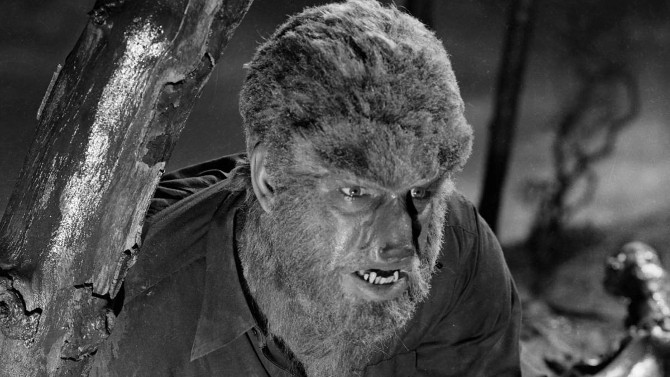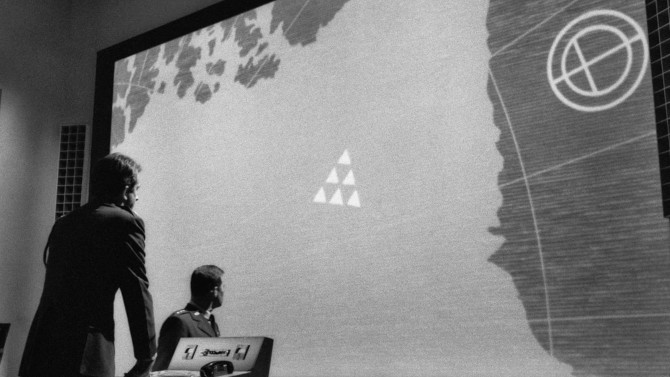
Safety First
Like a severe and utterly serious version of Stanley Kubrick’s 1964 satirical dark comedy Dr. Strangelove or: How I Learned to Stop Worrying and Love the Bomb, you would think that Fail Safe would have been the original release in theatres that was then later spoofed, yet that is not the case. Released approximately six months later in the same year, as you might imagine, it led to very poor returns at the box office – dare I say it (as the film deals with this subject matter)... it was a bomb! Despite that, over time, it has become a bonafide classic. Based upon Eugene Burdick’s 1962 novel of the same name and directed by Sidney Lumet (Dog Day Afternoon), he introduces us to our main players by way of little vignettes.
-
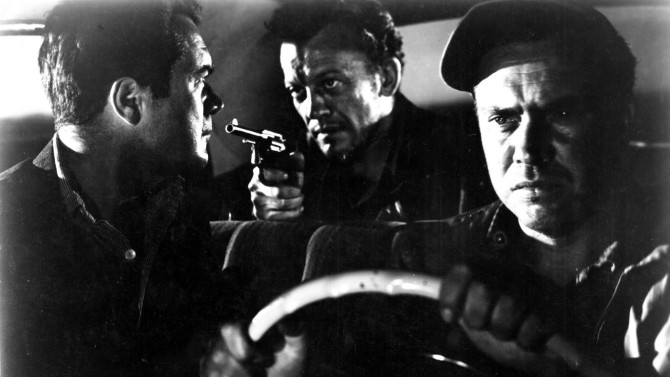
Hitching a Ride
The Hitch-HikerNovember 21, 2017Talk about an opening hook: “This is the true story of a man and a gun and a car. The gun belonged to the man. The car might have been yours – or that young couple across the aisle. What you will see in the next seventy minutes could have happened to you. For the facts are actual.” A perfect film noir introduction, the 1953 crime thriller The Hitch-Hiker, co-written and directed by Ida Lupino, is a seventy-one minute ride down a road you most definitely would not want to travel. In a simpler time (when people still picked up hitch-hikers), Emmett Myers (William Talman – best known as District Attorney Hamilton Burger on Perry Mason) utilizes this mode of transportation to evade the police. . . murdering those kind enough to pick him up. Dumping the body (or bodies) and abandoning the car, his thumb then goes up as he plays the stranded traveller – his two newest would-be-victims are Roy Collins (Edmond O’Brien – D.O.A.; White Heat) and Gilbert Bowen (Frank Lovejoy – In a Lonely Place; House of Wax).
-
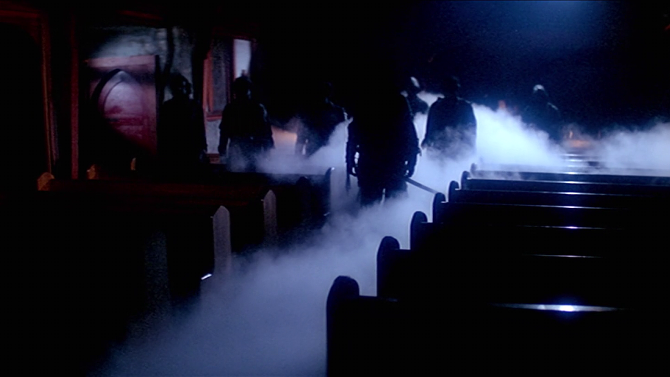
Weather Warning in Effect
The FogNovember 14, 2017There is something alluring about ghost tales being told in the darkness of the night. . . the way in which John Carpenter’s 1980 horror thriller The Fog opens – with a grizzled seafarer (John Houseman) recounting (to a group of wide-eyed children) the story of a ship of sailors who died in a horrific manner off of the coast of their small town one hundred years earlier. Building off of the success of his hit from two years earlier, Halloween, Carpenter once again shows his skills at developing an immersive world – this time creating a realistic ocean-side town packed with intriguing personas (in both films, he does so with a very limited budget). The locale, Antonio Bay, California, is celebrating its one hundredth anniversary, something the townsfolk are very proud of, especially Kathy Williams (Janet Leigh), one of the organizers of the festivities.
-
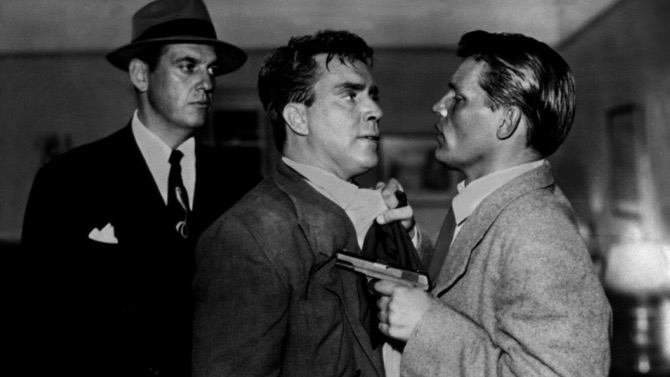
Death Becomes Him
D.O.A.November 12, 2017Talk about a hook of an opener – an extended tracking shot follows a man from behind as he enters a police station to report a murder. . . his own, and, rather interestingly, it seems as though the detectives were waiting for him. The man – Frank Bigelow (Edmond O’Brien); the film noir, D.O.A., a 1949 mystery directed by Rudolph Maté (a man who made several quality movies, though is better known for his superlative work as a cinematographer – think of Carl Theodor Dreyer’s two silent masterpieces The Passion of Joan of Arc and Vampyr, or later, Alfred Hitchcock’s Foreign Correspondent, Ernst Lubitsch’s To Be or Not to Be and Charles Vidor’s Gilda). Bigelow narrates his story to the men, transporting us back to the beginning of the tale.
-
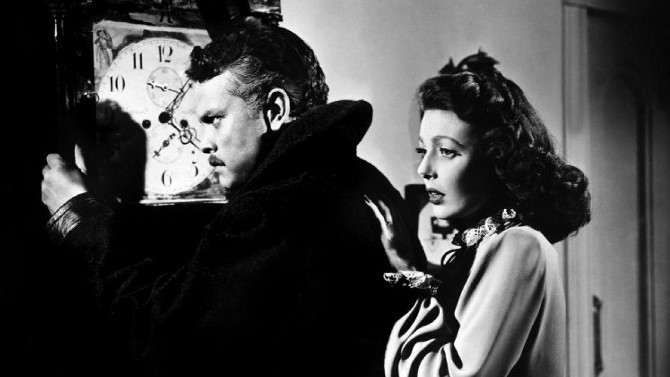
Strangers in the Night
The StrangerNovember 5, 2017It is Noirvember once again. . . the only time of the year when cynicism, doom-laden prospects and other dark themes should be sought out and applauded. The first film noir to grace Filmizon.com this November, 2017, is 1946's The Stranger. Directed by Orson Welles (his fourth feature, following the two classics Citizen Kane and The Magnificent Ambersons), this drama (with several film noir elements) follows Mr. Wilson (Edward G. Robinson – intriguingly, Welles originally wanted Agnes Moorehead portraying the lead as some sort of spinster lady), a sort of detective with the United Nations War Crimes Commission – or, to give his job a cooler name, he is basically a ‘Nazi Hunter’.
-
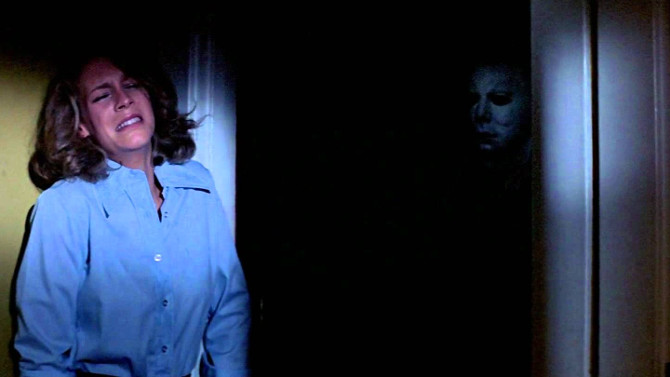
It’s Halloween
HalloweenOctober 31, 2017The penultimate movie to watch on October 31st, John Carpenter’s 1978 motion picture Halloween is the king of the slasher horror genre, fusing a villain of pure evil with suspenseful subtlety that keeps the viewer on the edge of their seat. Co-written by John Carpenter and Debra Hill (who also produces), the simple yet effective story begins with a young Michael Myers murdering his sister on Halloween night, 1963, in Haddonfield, Illinois. Committed to the Smith’s Grove Sanitarium, the Myers home, even fifteen years later, sits empty, dilapidated and believed by most community members to be haunted.
-
Star Pick with Lee Meriwether
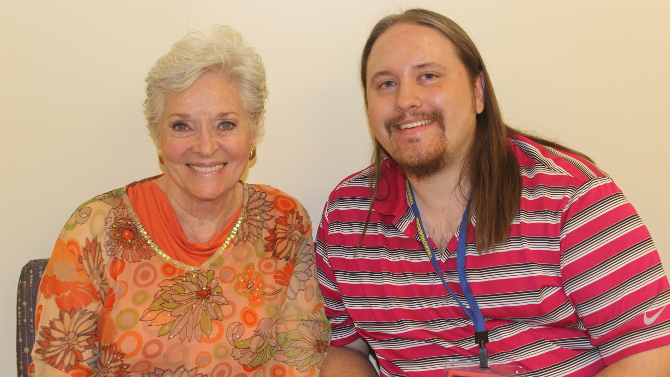 Feeling Wolfish?The Wolf ManOctober 25, 2017
Feeling Wolfish?The Wolf ManOctober 25, 2017It was an absolute pleasure sitting down with Lee Meriwether at Trekonderoga, the Ticonderoga, New York, convention that is all things Star Trek, this past August. An icon in the industry for the sixty plus years, Meriwether won Miss California in 1954, following it up by winning the Miss America pageant in 1955, the first year it was televised. Joining the Today Show soon after, it did not take long for her to nab her first major role in the 1959 sci fi horror flick 4D Man. Splitting time between television and the silver screen, she made guest appearances or had recurring roles on shows such as Dragnet, Leave It to Beaver, The Jack Benny Program, The Man From U.N.C.L.E., Perry Mason, The Fugitive, The Time Tunnel (all thirty episodes), Mission: Impossible, and of course, Star Trek – playing the mysterious Losira in the 1969 episode, “That Which Survives”. On the film front, Meriwether took over the role of Catwoman from Julie Newmar for Batman: The Movie (the first feature film, though there were two serial features created in the 1940s), also making two appearances as Lisa Carson soon after on the Batman series, she also starred opposite Andy Griffith in Angel in My Pocket, as well as John Wayne and Rock Hudson in the western The Undefeated, both motion pictures were released in 1969.

